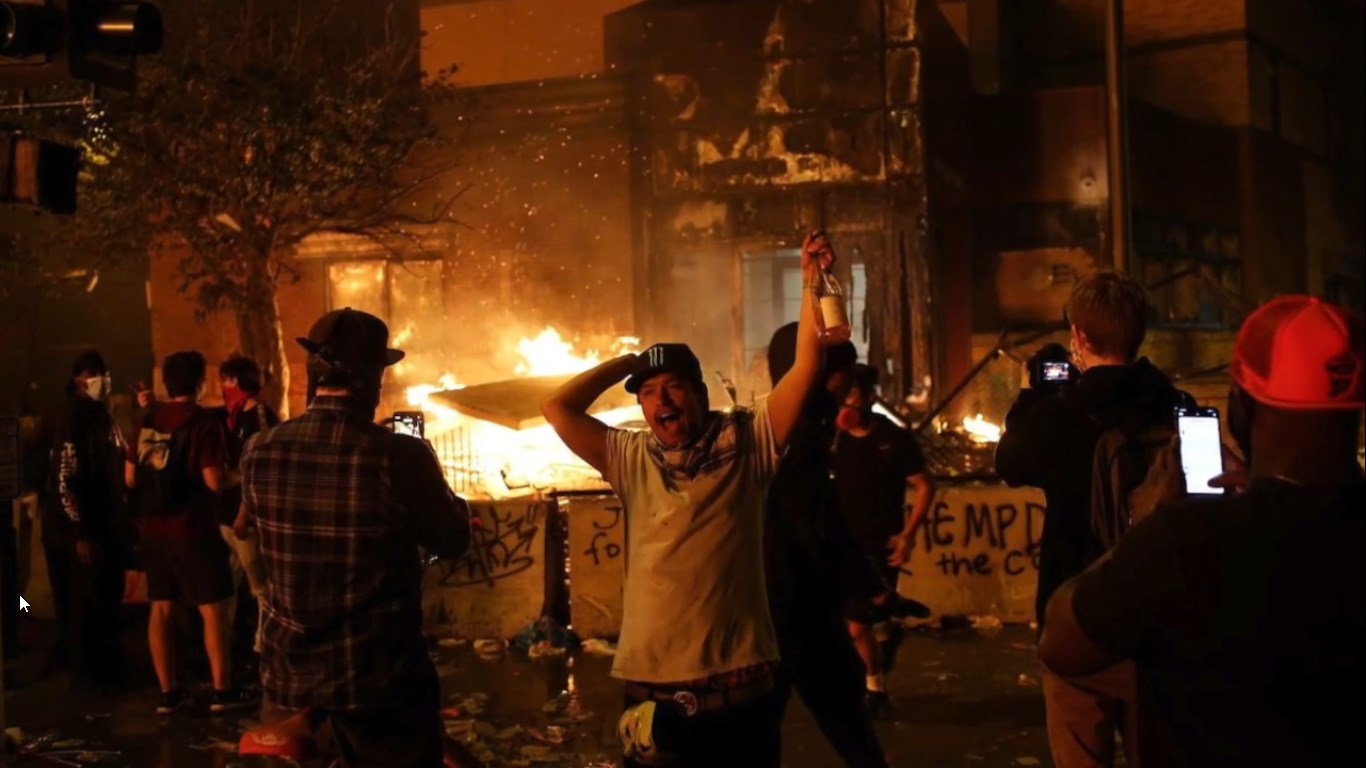Except that, Scharlie, my gnats are thirsty for whisky, not blood. I like spiders around, too, as long as they…
A Poem for the George Floyd Riots: ‘The Second Coming’ by W.B. Yeats
The Society of Classical Poets does not endorse any views expressed in individual poems or commentary.
















Beautifully read to a video that could not have been more appropriate.
Well done, indeed, Mr. Crisell.
This perfect reading adds gravitas and deeper meaning to the words of Yeats – this poem could have been written for this grievous, anarchic moment in time. Thank you, Mr. Crisell.
I second what Joe T has said. I can’t even imagine the work that must have gone into this apt video. First, this a perfect vehicle for Yeats’ words of course, but your voice, brings the words into immediacy for Americans. Someday you’ll have to reveal the techniques, video and audio equipment and applications that aided you in the creation of this piece of art. I’ve watched and listened to it twice now, and it only gets better.
Fabulous reading, fabulous production, and one of the truly greatest poems of the C20th. Harold Bloom got a lot wrong about modernism, but on Yeats, whom he considered the greatest poet since Wordsworth, he was spot on; and concerning this particular poem he said, ‘… I cannot think of any other modern poem with this overt rhetorical power’. Indeed. Your reading and your images bring this out Rob – well done, a great job and service to real poetry.
Thank you all for your kind comments. I hope we regain our collective sanity soon.
Sanity won’t return to my city of New York, which right now is burning down. Mobs of rioters are turning much of the place into a war zone and our imbecilic far-left mayor, Bill DeBlasio, is actually on the side of the rioters, and has ordered police not to take any active steps against them. The same is true in many other American cities run by the Democrat Party.
The only way to deal with rioters is to spray them with machine-gun fire. But of course our sentimental liberal pietists won’t hear of that.
Joseph,
I agree with you completely, and may the bullets from those machine guns not be made of rubber. Simply put, looter’s and arsonists should be shot on sight. Period.
I enjoyed Mr. Crisell’s excellent reading of “The Second Coming” by Yeats; and his idea of linking it to the recent riots inspurred me on to write “The New Millennium Report: June 2020”. Since I have immersed myself in the tennos and docupoetry, I have come oft to the poetry of Yeats. One of the reasons I like the SCP is that, in the give and take of poetic views, one can learn things [Ms. Bryant sent me to Woolf’s bizarre “Orlando”.], one can be inspired, one can even be fired up [Here I am thinking of Mr. Crisell’s excellent rendition of Shylock.].
While not for one moment do I share Mr. Sale’s singular admiration for either Yeats (or Wordsworth), still there is much in the poetry of Yeats that is usable for the practicing poet. I did like Mr. Sedia’s exploration of some of Yeats’s beliefs and poetry, where I explained some of my own attitudes to his poetry in a comment. @ SCP there is this wonderful sharing, baring, even airing out of poetic views; and for that I thank Mr. Mantyk and his own vision of poetry in the English language.
Thank you, Crise, for your excellent insights. I admit I’m an unabashed Yeats fan. If I could only bring 5 poets with me to my desert island, he would be one of them.
I could not easily choose only five poets. That would be hard. As soon as I name two classical poets, Homer and Vergil, and two modern poets, Dante and Shakespeare, I want to name a myriad more. But one can easily see how deeply Mr. Crisell feels about the poetry of Yeats from his reading. When choosing five poets, perhaps Mr. Crisell is thinking of English poetry. In that case, one wonders who else he would choose, and which other poems of Yeats he admires.
In addition to “The Second Coming,” poetically I have used “Easter 1916”, “The Wild Swans at Coole”, “Sailing to Byzantium”, and “An Irish Airman Foresees His Death”, inter alia. My favourite translation of Yeats is his “Epitaph on Swift”. Though some New Millennial writers, like Mr. Anderson and Mr. MacKenzie, discount the poetry of Yeats, and some poets, like Mr. Salemi, frequently found his poetry “tediously impenetrable”, I have felt for some time that the poetry of Yeats is the clearest poetry in the English language; and I think it is partly because of his transition from Victorian to Modernist poetry, coloured by his Irishness. So, though I do not share Mr. Sale’s assessment of Yeats’s work, I would grant that particular quality in the poetry of Yeats.